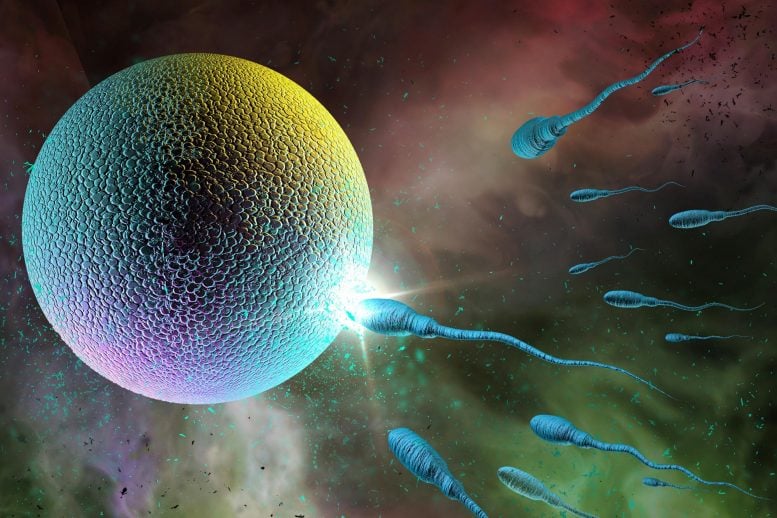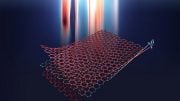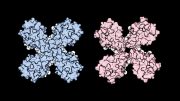
Researchers found a mutation in the sperm protein FSIP2 lead to infertility in mice. This discovery offers hope for developing infertility treatments.
Male infertility affects more than 20 million men globally and is a contributing cause to around 50% of infertility in couples. Frequently, male infertility is the result of defects in the sperm tail, the flagellum, which allows the sperm to swim toward an egg. Males with severe infertility can experience multiple sperm malformations, including flagella that are shortened, irregular, coiled or even absent, preventing them from swimming.
In humans, several genetic mutations lead to malformed sperm, including those affecting the sheath that covers the sperm; the mitochondria, which power sperm as they swim; and a tiny sac, the acromosal vesicle, which releases the enzymes that allow one successful sperm to break down the exterior lining of the egg cell to fertilize it.
To understand more about the causes of male infertility, Drs Na Li and Ling Sun, research group leaders at Guangzhou Women and Children’s Medical Center, collected sperm samples from infertile men and identified one individual with multiple defects affecting his sperm flagella. Through genetic analysis, they found a mutation in a largely unknown sperm protein, FSIP2 (Fibrous Sheath-Interacting Protein 2), a component of the fibrous sheath. “The fibrous sheath covers the tails of sperm found in humans, mice and other species in which fertilization occurs within the animal’s body”, explains Li. “It offers the sperm tails flexibility and strength, which is necessary for sperm to swim in the dense and sticky medium of the human body before they meet the egg. Interestingly, animals whose sperm swim through water because fertilization occurs outside of the body, such as fish, either do not have the FSIP2 protein or, at most, a defective version.”
To study the function of FSIP2, Li, Sun and their team of researchers generated two sets of mice: one in which they recreated the FSIP2 mutation of the human patient and another in which the animals overproduce the FSIP2 protein. They found that mice with the FSIP2 mutation become infertile; their semen contained fewer live sperm and over 50% could not swim forward, even though some of them could still beat their flagella. In contrast, the mice that overproduced the FSIP2 protein remained fertile and, compared to normal mice, had over 7 times more super-long sperm, which could swim faster and be more capable of fertilizing an egg.
To understand the reasons for these changes in the sperm flagella, the researchers looked at the composition of the sperm. They found that the sperm of mice with the FSIP2 mutation had lower amounts of the proteins that make up the sheath surrounding the sperm, the mitochondrial power generators and the acrosomal vesicle. In contrast, the sperm of the mice that were overproducing FSIP2 made more sperm tail proteins, particularly in the fibrous sheath, which could allow sperm to swim more easily through the body. They published this discovery in Development.
The findings of Li, Sun and their team offer hope that scientists can begin to develop treatments for infertility, either by finding drugs that restore sperm movement or even by finding ways to correct the debilitating mutation that causes the problems in the first place. Ultimately, such treatments could give men suffering from infertility the chance of becoming fathers.
Reference: “Hypomorphic and hypermorphic mouse models of Fsip2 indicate its dosage-dependent roles in sperm tail and acrosome formation” by Xiang Fang, Yaser Gamallat, Zhiheng Chen, Hanran Mai, Pei Zhou, Chuanbo Sun, Xiaoliang Li, Hong Li, Shuxin Zheng, Caihua Liao, Miaomiao Yang, Yan Li, Zeyu Yang, Caiqi Ma, Dingding Han, Liandong Zuo, Wenming Xu, Hao Hu, Ling Sun and Na Li, 14 June 2021. Development.
DOI: 10.1242/dev.199216









Be the first to comment on "New Hope for Infertile Men – Mice Could Hold the Secret"